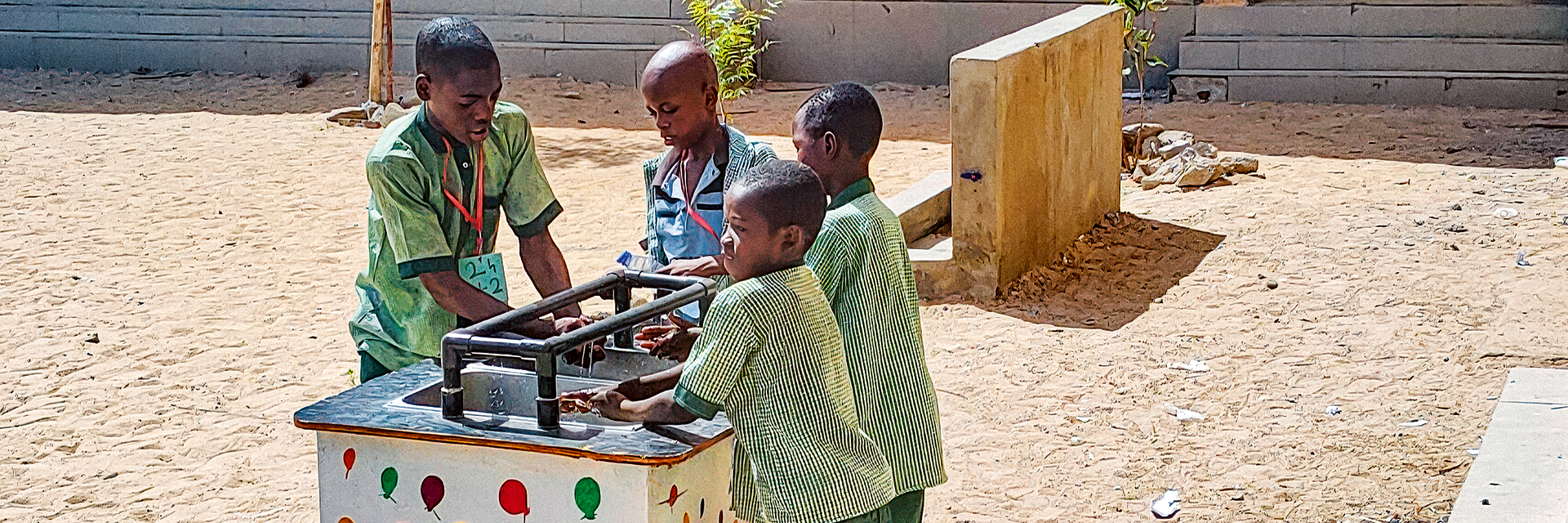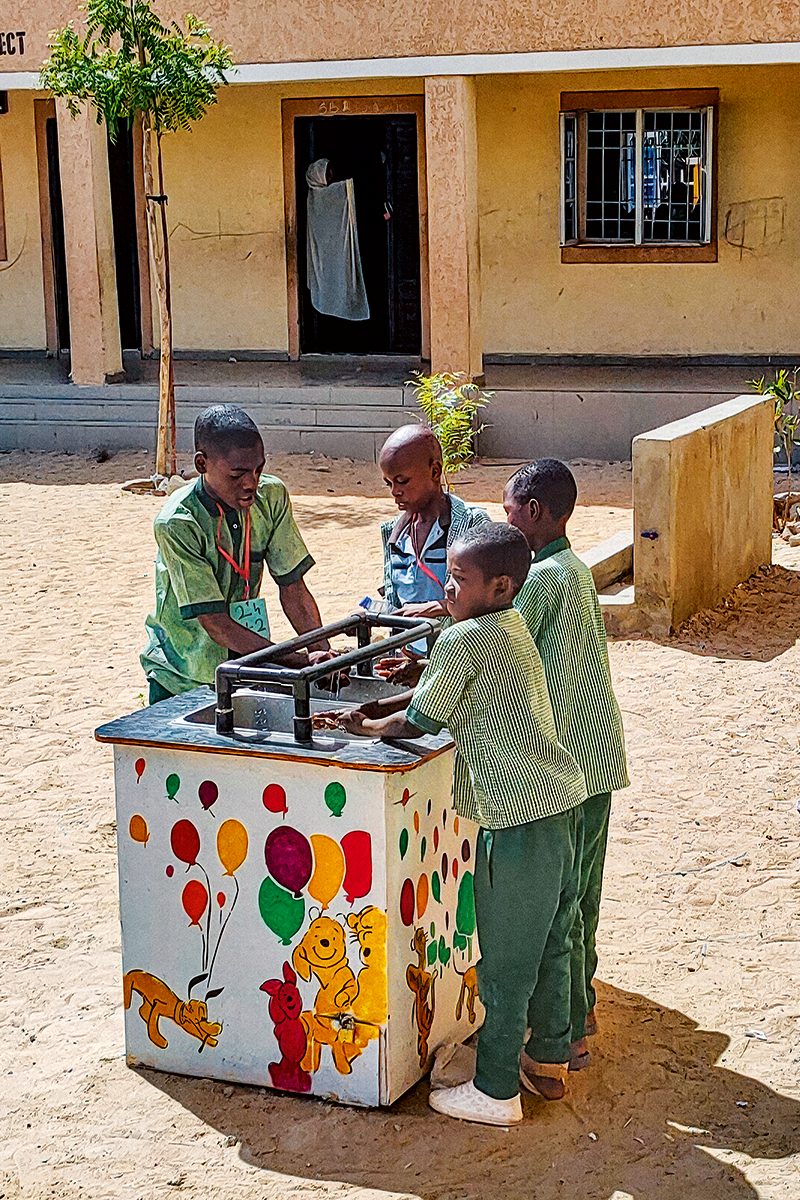A systemic approach to safe water
Maryna Peter and her project team are preventing disease through handwashing technology, behavioural science, effective management and long-term relationships.
Over 45% of primary health care facilities and 50% of schools in low-and middle-income countries do not have access to handwashing facilities, basic hygiene and water supply systems necessary to prevent disease transmission. In response to this challenge, Dr. Maryna Peter and her team at the Institute for Ecopreneurship answered a call from the Swiss Agency for Development and Cooperation with a project called Hands4Health. The project proposes an approach to support water, sanitation and hygiene (WASH) systems that reduce diarrhoea among children at schools and prevent transmission of infections in health care facilities.
Coming from a background in environmental engineering, Peter is the inventor of a gravity-driven membrane technology that filters water and removes pathogenic microorganisms. It can be used for treating drinking water, but also to recycle water. Gravit’eau systems use this technology for handwashing, reusing the same water for several weeks before it is replaced. By providing a source of water for handwashing only, the technology helps conserve drinking water, which is important during emergencies and in water-scarce areas. Peter’s not-for-profit association Gravit’eau offers the design under open access to communities, who learn to produce the system themselves with the support of association members. When Peter joined the FHNW School of Life Sciences, she not only brought this technological legacy with her, but also the vision to deploy it using a systemic approach.
The Hands4Health project she leads jointly with her WASH team is active in Mali, Burkina Faso, Nigeria and Palestine. The consortium is composed of researchers from the FHNW, the Swiss Tropical and Public Health Institute, École Polytechnique Fédérale de Lausanne and the Palestinian Polytechnic University. Alongside them are non-governmental organisations Terre des hommes, Cesvi and Skat Foundation, as well as private sector partners Ranas and Martin Systems. The team works closely with local governments and community representatives, focusing on improving water, sanitation and hygiene services at off-grid schools and health care facilities located in conflict-affected areas.
The first step is developing a shared understanding of the context-specific challenges and defining a common goal to work toward. “Each situation is different, and it’s crucial to engage local stakeholders at the outset so that we can prioritise the needs effectively and sustainably and understand the barriers” says Peter. “NGOs like our partners Terre des hommes and Cesvi have long-standing relationships with communities, local governments, schools and health care facilities and help us build trust.”
A key partner of the project, Ranas, is contributing their model of behaviour change to understand motivators for and barriers to handwashing in school children and health care facility staff. Factors such as risk perceptions, attitudes, norms and values, abilities and self-regulation are important drivers of behaviour. For each country, behavioural factors that can improve consistency of handwashing practices were identified. Corresponding behaviour change activities can then be selected from activity catalogues that are prepared within the project, specifically targeted to the schools’ and health care facilities’ contexts.
Peter’s team is contributing overall project leadership as well as hardware interventions, monitoring technologies and impact evaluation. They are evaluating sensors for the handwashing stations that measure water level, and supporting NGOs and authorities in establishing effective monitoring processes using Kobo-based data collection apps linked to dashboards. Finally, they offer simple how-to guides for planning improvements to water systems, maintaining water tanks and chlorinating water.
“This project is not only about getting scientific results” says Peter. “Our goal is broad public dissemination of a systemic approach to communities and NGOs, so they can test and implement it to increase the sustainability and impact of their WASH programmes.”
Since 2021, Hands4Health has worked in 26 schools and 24 health care facilities, with additional implementations planned in 24 health care facilities and 26 schools by the end of 2024, reaching nearly 100,000 people.
Key facts | |
|---|---|
Communities: | Health care facilities and schools in Mali, Burkina Faso, Nigeria and Palestine |
Water and sanitation systems: | Recycling water for handwashing; Chlorination; Rehabilitation of infrastructure; Behaviour change; Digitalised monitoring and impact evaluation |
Partners: | 10 partners |
Funding: | Swiss Agency for Development and Cooperation – Transform 2020 |

